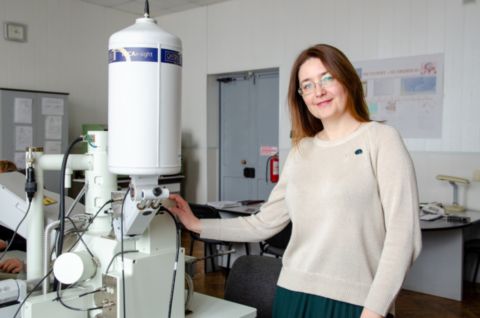SUSU researchers are developing new compositions and methods for obtaining composite coatings with non-metal and intermetal high-entropy compounds as part of the New Non-conventional Materials project of the Priority 2030 program. The study received support from the RSF. Using additive manufacturing technologies makes it possible to create coatings with a unique composition, which give such material properties as heat resistance, corrosion resistance, ionizing radiation resistance, and the ability to absorb or reflect electromagnetic radiation.
In the last decades, a new technology to produce parts using additive layering of material has been actively developed. This method of synthesizing products is called additive manufacturing and is used to manufacture products from various materials: plastic, metal, concrete, etc. Currently, this technology is widely used to create metallic and non-metallic prototypes and functional products.
.jpg)
The applied aspects of additive manufacturing technologies have been of interest to SUSU scientists for a long time. With the support of a grant from the Russian Science Foundation, it became possible to apply additive technologies (laser cladding and detonation spraying) to obtain metal matrix composite coatings with a fundamentally new composition. The coatings consist of particles of nonmetallic and intermetallic high-entropic compounds.
This project is unique in that additive technologies are used to create coatings with high-entropy phases from powders consisting of a mix of pure components or from powders of low-entropy alloys.
"To create the coatings, powder mixture compositions are pre-created using thermodynamic and kinetic simulation methods. The programs FactSage 8.0 and Thermo-Calc help in this. These mixtures form non-metallic and intermetallic high-entropic phases in the coating matrix," says Natalia Shaburova, project head and Associate Professor of the SUSU Department of Materials Science, Physical and Chemical Properties of Materials.
The adhesive properties, corrosive resistance in an electrolyte, and gas corrosion of the obtained coating samples are analysed. The researchers also plan to conduct structural studies of the material.
The new coatings, thanks to their unique combination of performance properties, could be in high demand in several industries including engine manufacturing, rocket engineering, and others in which surfaces are subjected to heat.
To date, papers on this method of manufacturing coatings have not been published. The project received support from the Russian Science Foundation (RSF) to the tune of 1.5 million roubles for the first year of research. In total the project includes two years of research.
"For a researcher, grants are above all an opportunity to continue their research, a confirmation that the topic of their research is relevant, promising, and has value not only for themselves, but also for the future of the entire country. Working in small research groups, in addition to the increase in scholarship, allows undergraduate and graduate students to acquire the necessary skills and knowledge that will be useful in further independent work," says the scientist.
The SUSU research team uses a modern computerized FL-Clad-R-4 laser cladding complex and CCDS2000 detonation sputtering unit at the SUSU Laboratory for Mechanics, Laser Processes and Digital Production Technologies, founded in 2017. The laboratory has already been used for a number of research projects ordered by industrial companies and state corporations including Roscosmos, Transneft, SMS-group, Chelyabinsk Tube Rolling Plant, and AO KONAR.
.jpg)
South Ural State University is a university of transformations, where innovative research is conducted in most of the priority fields of science and technology development. In accordance with the strategy of scientific and technological development of the Russian Federation, the university is focused on the development of big scientific interdisciplinary projects in the field of digital industry, materials science, and ecology. In 2021 SUSU became the winner in the competition under the Priority 2030 program. The university acts as a regional project office of the World-class Ural Interregional Research and Education Centre (UIREC), which is aimed at solving the tasks of the Science and Universities National Project.
Read our news:




